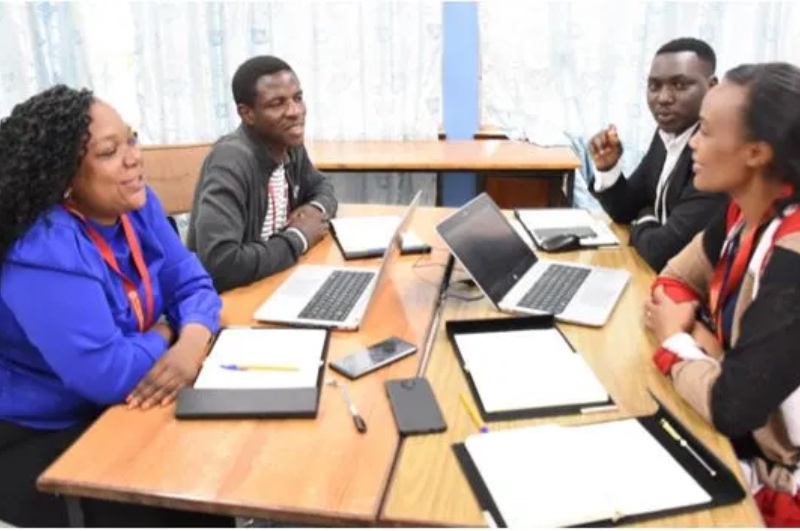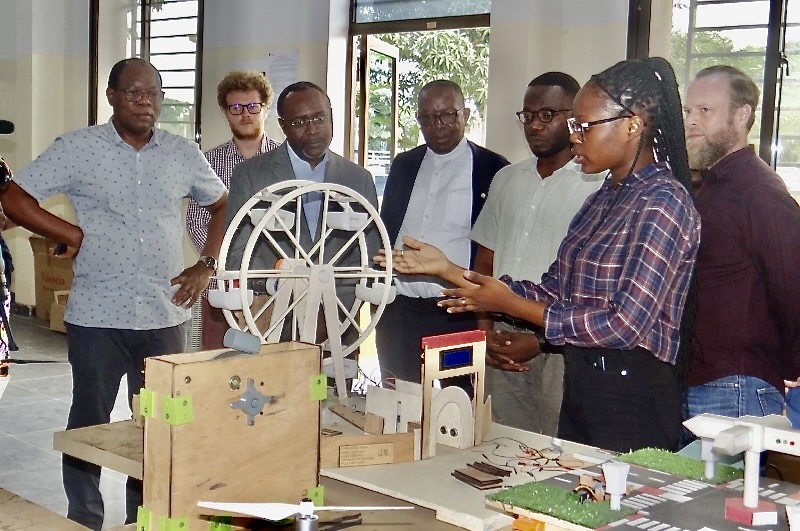

HARARE, Zimbabwe – The Jesuit Association of Secondary and Basic Education in Africa and Madagascar (JASBEAM) from, 17 to 22 August 2025, convened the second edition of Educating for Faith Colloquium at St. George’s College in Harare.
Under the theme “Educating for Faith in the 21st Century,” the event brought together educators, leaders, and Jesuits from across the continent and the globe.
Here’s a look at the key discussions and events that unfolded each day.
Day 1: A Celebration of Unity and a Vision for the Future
The colloquium opened on August 18th on a joyful and colourful note. The hall was filled with warmth and energy as the Zimbabwe National Children's Choir and the Hartmann House Band led the assembly in song, while a procession of flags from all represented countries created a moving display of unity and diversity.
The formal proceedings began with welcome remarks from His Grace Archbishop Robert Christopher Ndlovu, who received participants, especially those visiting Zimbabwe for the first time. He highlighted the inseparable link between faith and education, rooted in the Jesuit tradition of cura personalis and discernment. In a world marked by secularism and misinformation, he declared that Catholic education must not retreat but must educate for wisdom, identity, and justice, forming builders of society who are unashamed to face Christ in their actions.
Fr. Leonard Chiti, SJ, Provincial of the Southern Africa Province, extended a warm welcome, highlighting the province's rich history and its 22 schools. He emphasized that Jesuit education aims to form the whole person, shaped by the 4Cs: conscience, competence, compassion, and commitment.
Fr. José Minaku, SJ, President of the Jesuit Conference of Africa and Madagascar (JCAM), officially welcomed everyone, celebrating the diverse representation. He expressed deep gratitude to the hosts and organizers, acknowledging the outgoing JASBEAM coordinator, Fr. Joe Arimoso, SJ, and welcoming the new coordinator, Fr. Chikere Ugwanyi, SJ. He reminded participants that “the plane has taken off, and all are on board,” urging deep listening and a renewed commitment to collaboration, stating that networking is a mission and spirituality, not just a management strategy.
Fr. José Mesa, SJ, Secretary for Jesuit Education of the Society of Jesus, affirmed the colloquium as a significant milestone in the right direction. He acknowledged the challenges in providing quality education but saw the very gathering as a strong sign of a shared desire to work together. He set the stage for the days ahead by stating that educators are not living in an era of change but a change of era, demanding courage and creativity.
The day’s first major presentation was delivered by Fr. Mesa, who outlined five critical topics for Jesuit education today:
1. Global Citizenship: Preparing students to see themselves as members of the human family.
2. Educating for Faith: Maintaining Catholic identity in multicultural contexts through a "culture of encounter."
3. Global Network: Highlighting the connected network of over 930,000 students in 73 countries, proving that together we can serve better.
4. Social Justice and Care for Creation: The inseparable call to educate for justice and ecological responsibility.
5. Lifelong Learning: The need for schools to embrace innovation and change.
The day concluded with a session from Educate Magis, led by Mr. Dave Smith and Ms. Ciara Beuster, who demonstrated the global online platform’s resources for teacher formation, leadership, and community building, followed by spiritual conversations and Mass.
Day 2: Deep Dives into Networking, Africa's Needs, and Safeguarding
The second day, August 19th, began with a prayer led by Fr. Kevin Oodo,SJ, followed by a pivotal presentation from Fr. Bob Reiser, SJ, on “How does networking enhance mission and identity?” Framing his talk with Pope Francis’s idea of a “change of epoch,” Fr. Reiser guided participants through reflective questions on how this change affects their lives and schools. He provided a historical overview of Jesuit networking, emphasizing that these bonds of collaboration strengthen the mission and mature colleagueship into kinship.
Dr. David Kaulem then addressed “The needs of Africa and Madagascar, and the education response.” He outlined the continent’s urgent, multidimensional challenges, pointing out the paradox of abundant resources alongside severe deprivation. He argued that Catholic schools must resist market-driven educational models and instead nurture a new value system rooted in human dignity and stewardship, requiring discernment and courage to engage in cultural and economic debates.
The morning session concluded with a critical presentation on the Promotion of a Consistent Culture of Protection (PCCP) by Fr. John Guiney, SJ, and Dr. Sandra Racionero-Plaza. They explained that safeguarding is a prophetic mission aligned with walking with the poor and vulnerable. Dr. Racionero-Plaza detailed the impacts of the PCCP pilot program in JASBEAM schools, highlighting its co-creation model, integration of Ignatian spirituality with scientific knowledge, and its transformative effect on school communities and beyond.
The afternoon was dedicated to spiritual conversations within groups, allowing for deep reflection on the morning's themes, followed by Mass presided over by Fr. Martin Kamau, SJ.
Day 3: Forming Leaders and Living Jesuit Identity
The final full day, August 20th, opened with a prayer led by Ms. Lucy Monari the Safeguarding Coordinator of JCAM, before moving to its central theme: leadership.
Ms. Rachel Adams delivered a powerful address on “Educating leaders for the Africa we desire and deserve.” Against a backdrop of stark statistics—including a crippling jobs deficit for African youth—she outlined five essential qualities for future leaders: storytelling, lifelong learning, systemic thinking, imagination, and courage. She challenged educators, as “the ceiling from which young people rise,” to preserve the fire of passion and hope, not just the ashes of tradition.
Fr. Augustin Kalubi, SJ, followed with a deep reflection on “The Catholic Ignatian Jesuit Identity of our Schools.” He grounded his talk in the call to remain centred in Christ, emphasizing that Catholic education is an act of evangelisation. He explained how the Ignatian identity integrates this Catholic dimension with the charism of St. Ignatius through the Spiritual Exercises and the Ignatian Pedagogical Paradigm (IPP). He stressed that networking at all levels strengthens this identity and that safeguarding is its central, non-negotiable pillar.
Fr. Dani Villanueva, SJ, of the Global Ignatian Advocacy Network (GIAN), focused on “Networking and Education for the disadvantaged.” He detailed the global education crisis and showcased how Jesuit networks like Fe y Alegría and the Jesuit Refugee Service (JRS) are serving hundreds of thousands of learners in the most marginalized areas, embodying the mission to "go where the need is greatest."
The afternoon featured a practical session on “Educating for global collaboration” by Ms. Catharine Steffens and Ms. Lynette Ndlovu. They presented a new framework being piloted to create Glocal Action Teams (GATs), where students tackle local problems with a global perspective. They shared successes and challenges from pilot schools across the JASBEAM region.
Finally, Mrs. Allison Stangroom provided a concrete case study of living out Jesuit identity using St. George’s College. She detailed how Ignatian values are woven into every aspect of the school’s life—from student retreats and service projects to staff formation and parent engagement—offering a tangible model for other institutions.
The colloquium concluded with a French Mass celebrated by Fr. Kalubi, animating the delegates before a final dinner and socials, sending participants home with a renewed sense of mission, practical tools, and the strengthened bonds of a global community dedicated to transforming education in Africa.
Related Articles

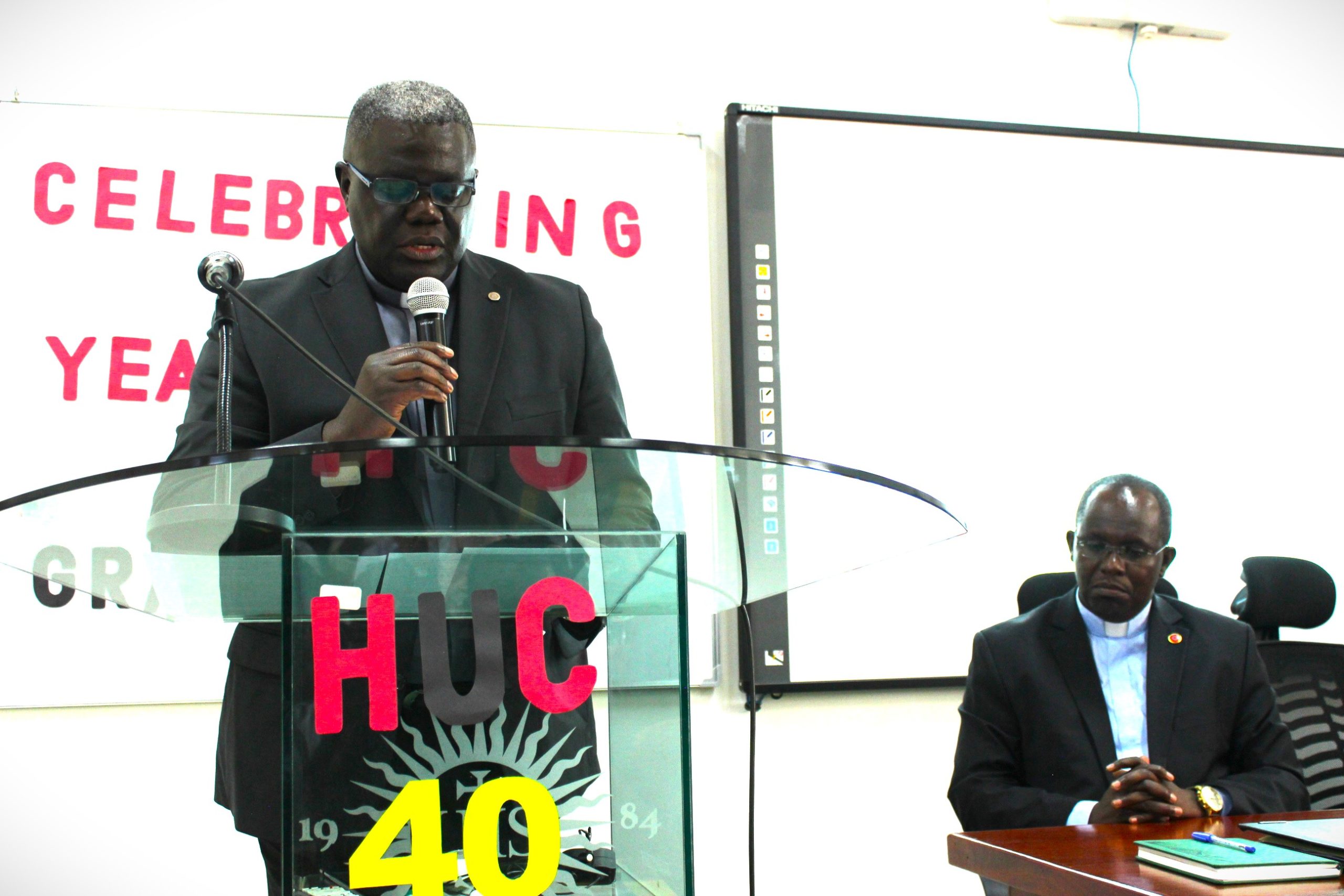
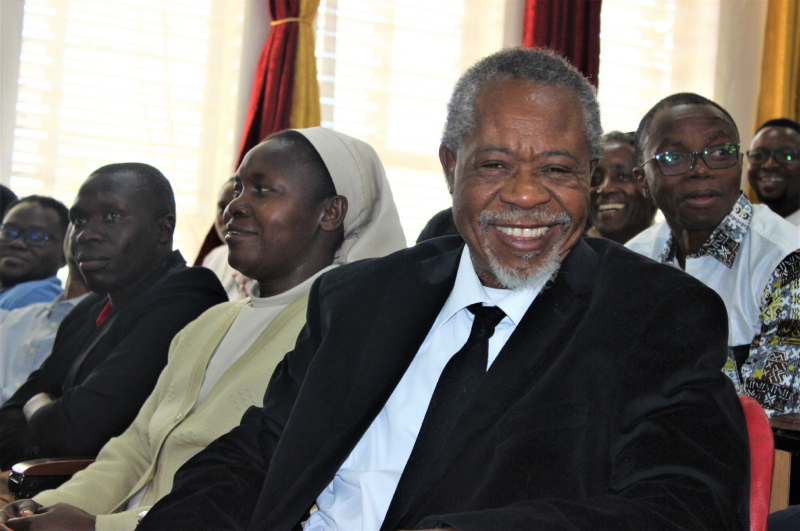


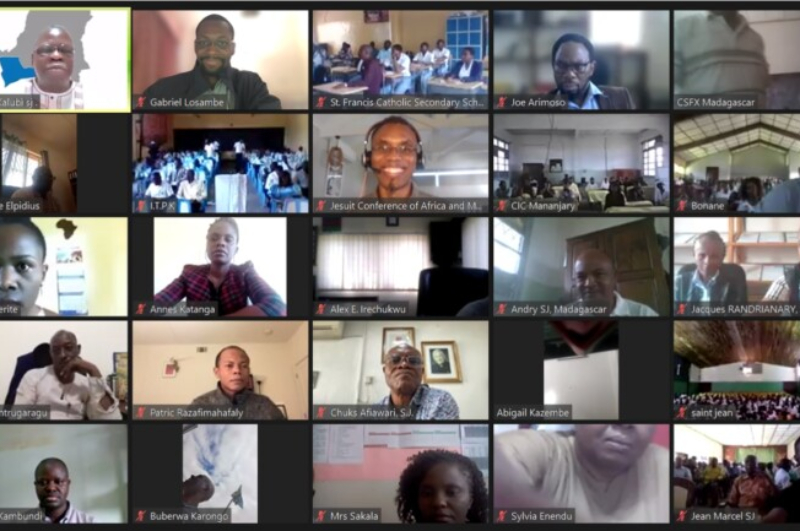
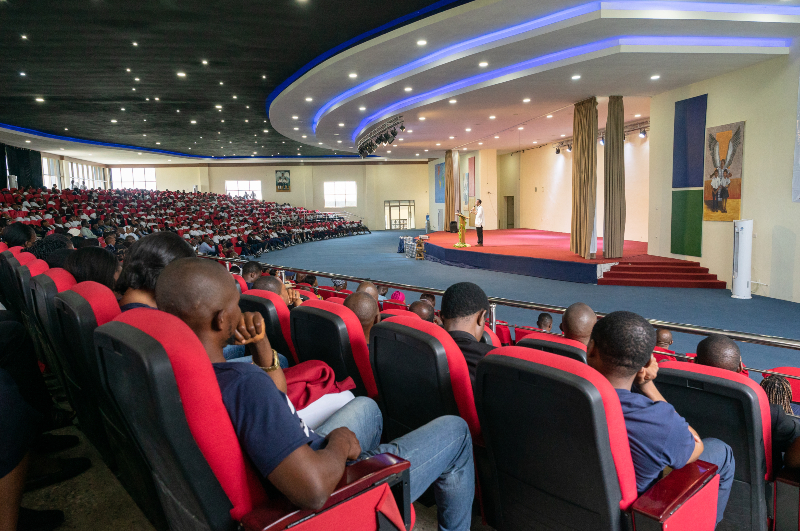
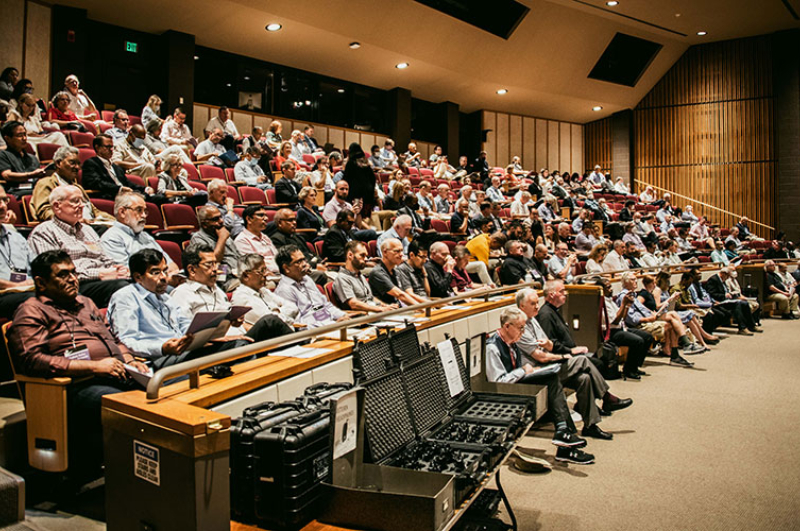
Select Payment Method
Pay by bank transfer
If you wish to make a donation by direct bank transfer please contact Fr Paul Hamill SJ treasurer@jesuits.africa. Fr Paul will get in touch with you about the best method of transfer for you and share account details with you. Donations can be one-off gifts or of any frequency; for example, you might wish to become a regular monthly donor of small amounts; that sort of reliable income can allow for very welcome forward planning in the development of the Society’s works in Africa and Madagascar.
Often it is easier to send a donation to an office within your own country and Fr Paul can advise on how that might be done. In some countries this kind of giving can also be recognised for tax relief and the necessary receipts will be issued.



